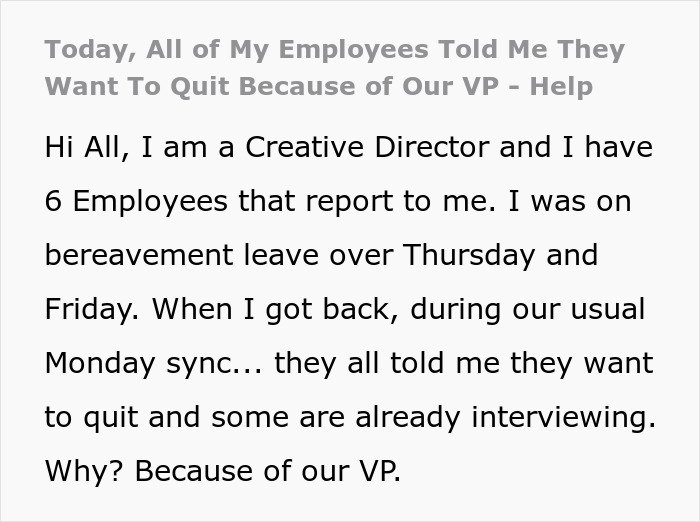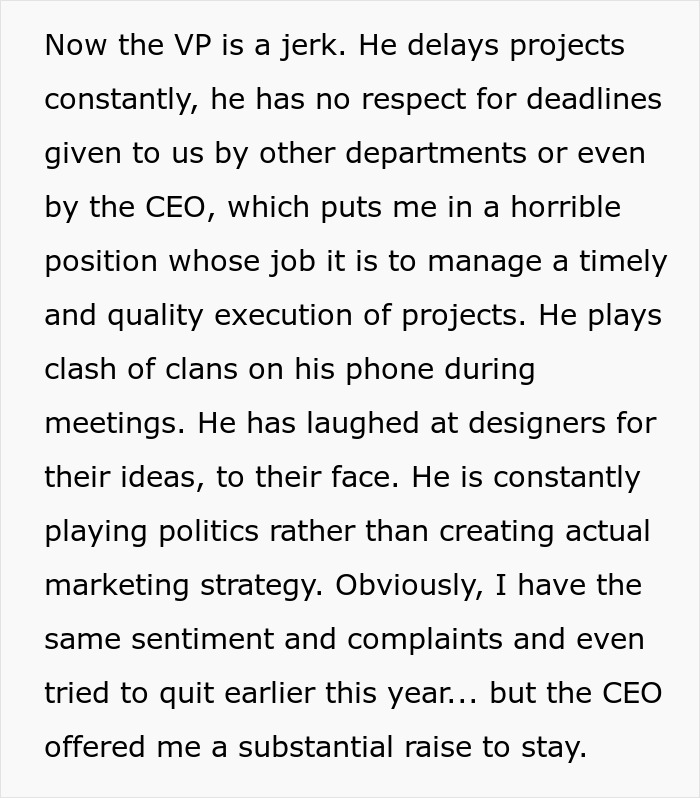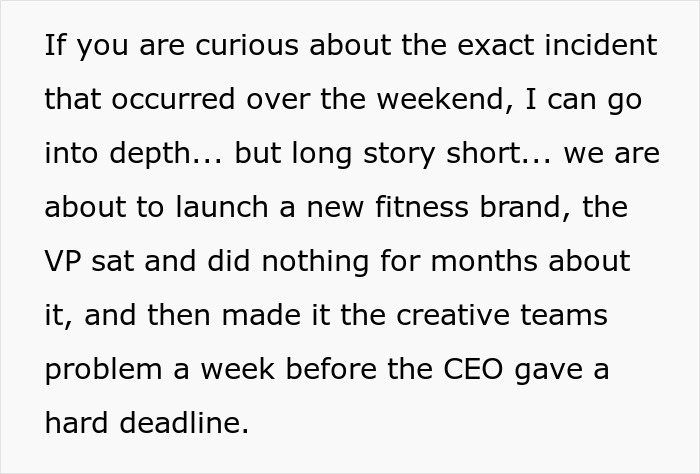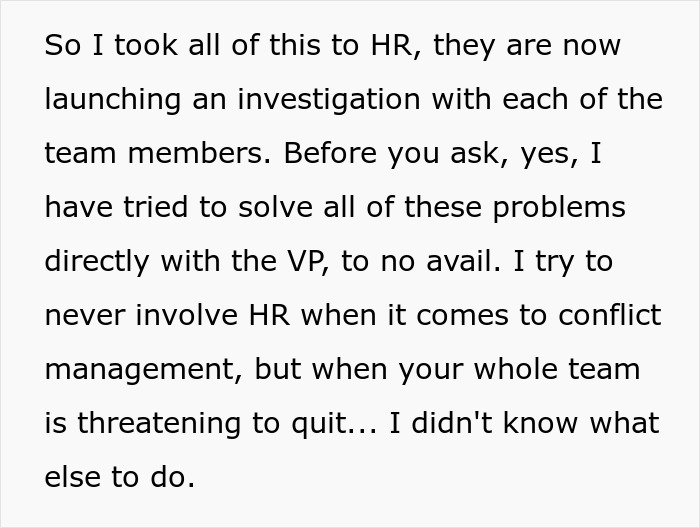Quitting is usually not a decision that is to be taken lightly. If you don’t have a new job lined up yet, it’s a huge risk to jump ship. But if you’re fed up with your boss, your salary, your workload or your colleagues, it’s sometimes worth it to just say, “Sayonara!”
However, a mass exodus of employees can be extremely stressful for managers who value their teams. That’s why one creative director recently reached out to the Managers subreddit seeking advice on how to convince his employees not to quit just yet. Below, you’ll find the full story, as well as some of the suggestions readers shared.
This manager had to miss a couple days of work while on bereavement leave
Image credits: fauxels / Pexels (not the actual photo)
But when he returned, he found that his entire team was on the verge of quitting
Image credits: Kampus Production / Pexels (not the actual photo)
Image credits: ChickenUsual6622
Managing a team is never easy
Being a manager certainly isn’t an easy job. You constantly have to make decisions, delegate tasks, ensure that your employees respect you but are still comfortable, and you’re required to be a liaison between the higher ups and your own team. You might develop strong relationships with your employees, but you have to be careful not to be too cozy with them, as you shouldn’t show anyone special treatment or allow team members to take advantage of your kindness.
Managers should listen to their employees’ concerns and do everything in their power to respond to employee input, but it’s impossible to please everyone. Difficult decisions will come up frequently, and it’s important for managers to know how to adjust their leadership style based on who they’re working with and what their goals are.
A manager must also provide feedback to their workers that’s relevant, timely and helpful, and they’re required to make sure that everyone is keeping up with their responsibilities. Plus, it’s important for managers to know when they need to ask for help. Whether that means reaching out to HR or seeking guidance or resources from their own boss, a good manager knows that they won’t always have the answers.
Over half of employees have left a job due to their boss
Another one of the most challenging aspects of managing a team is trying to keep them all happy, so they stick around for a while. According to Inc, a whopping 86% of employees decide within their first six months at a new job whether they want to stick around long-term. First impressions are important, and there’s no time to waste when it comes to keeping employees satisfied.
And if you want to keep your team happy, you better be a great boss. A study from DDI reported that 57% of workers have quit a job because they didn’t like their manager, and 14% of employees have done this multiple times. Meanwhile, a third of workers have seriously considered quitting a job because they were unhappy with their manager.
It’s disappointing to know that there are so many poor managers out there, but it’s not surprising when you find out that 70% of frontline managers admit that they weren’t actually expecting to be promoted to a leadership position. Nearly a fifth of managers actually regret their promotions, and 41% admit that they’re unsure whether it was the right move or not.
It’s important to prioritize employee satisfaction before it’s too late
According to Thomas Griffin, employees who leave because of a bad manager usually make their decision to move on because their boss refuses to lead by example, doesn’t offer support or recognition and fails to communicate effectively. Other management issues that might push employees out the door are micromanaging and fostering an unhealthy work environment.
It’s wise for bosses to be aware of some of the signs that an employee is about to quit, so they can try to do something before it’s truly too late. High turnover rates are costly, frustrating, take up time and resources and frankly don’t look great for business. So it’s best to focus on keeping employees satisfied.
If a team member starts taking more time off than usual, becomes reluctant to commit to long-term projects, starts becoming active on LinkedIn, avoids social events at work, starts taking more personal calls or makes unrealistic requests, managers should become aware of the fact that they might be quitting soon, Homebase explains. It might be too late to change their minds, but a concerned manager should not hesitate to reach out for help.
We would love to hear your thoughts on this situation down below, pandas. Then, if you’re interested in checking out another piece discussing why employees quit, we recommend reading this article next!








